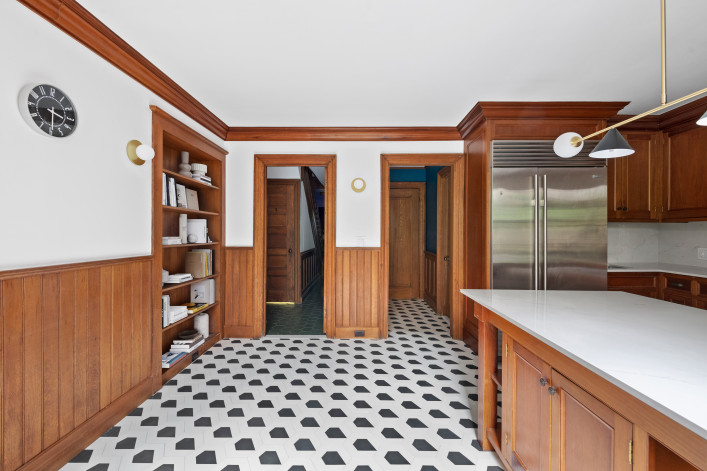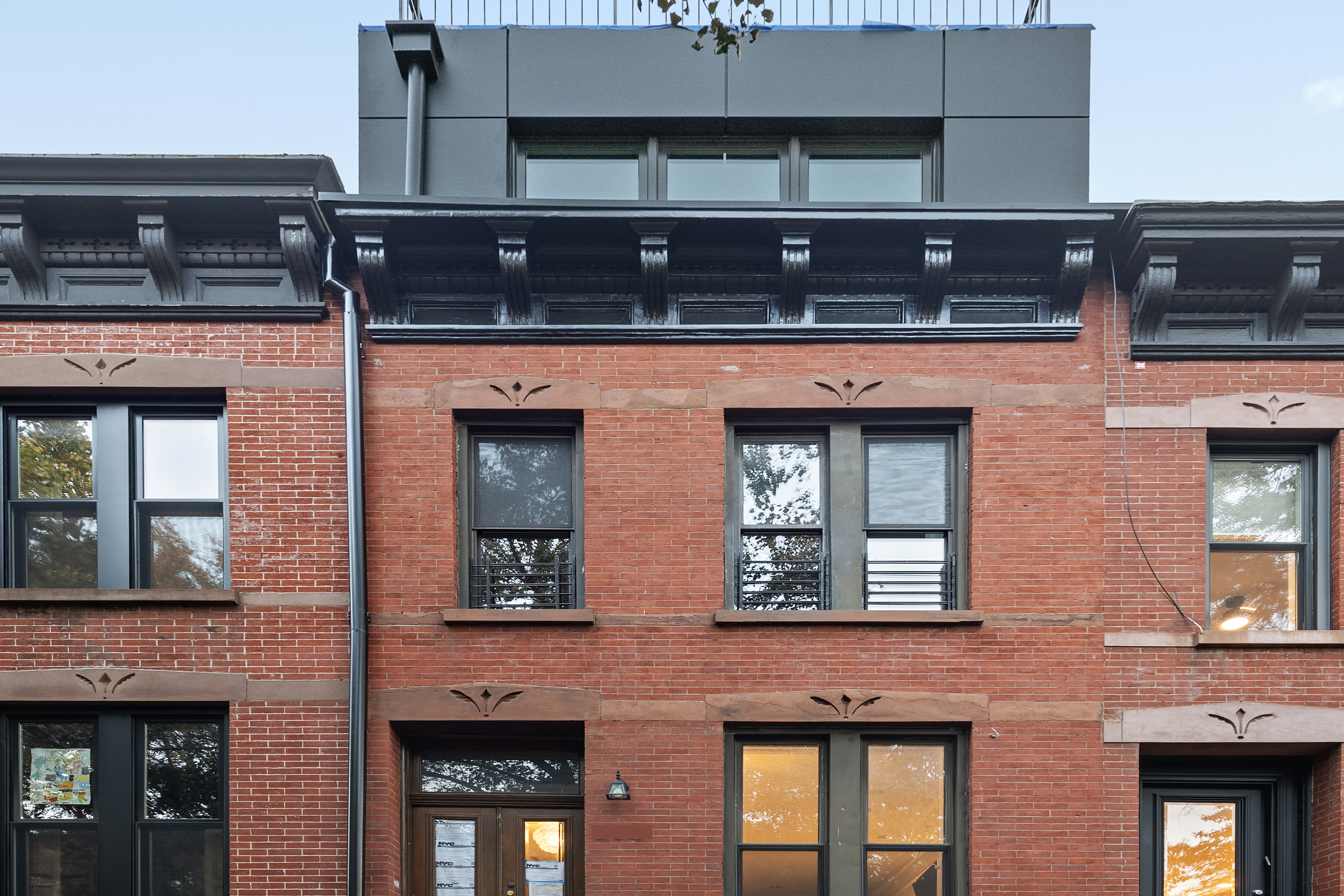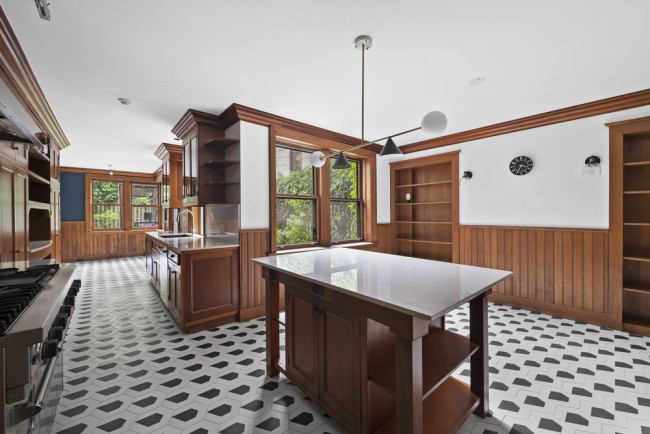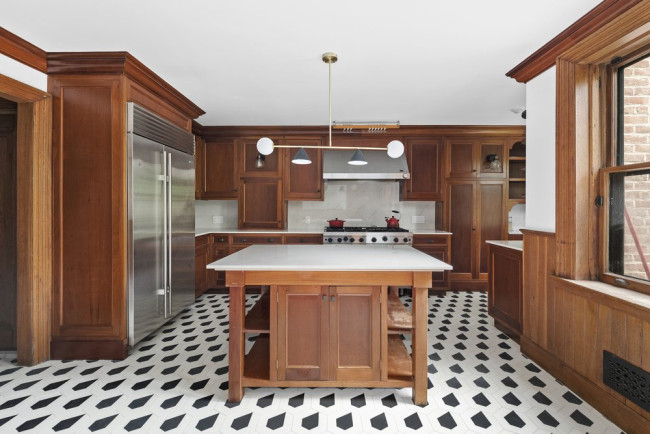Tips for living at home during a renovation of your NYC brownstone or townhouse
- Hire reliable professionals who specialize in single-family home renovations
- Move furniture or personal belongings away from the area being upgraded
- You will need to find another place to stay during the demolition phase

The owners of a Park Slope brownstone undergoing a partial renovation were able to stay with family until the demolition phase was complete.
Bolster
Living in your home during a renovation can be a test of your patience, but with careful planning and clear communication, you can make the process more manageable.
Bolster, a data-driven, design-build firm with more than a decade of experience in high-end renovations in New York City, has seen a rise in homeowners who are interested in living in their homes during their renovations. This has become especially common in single-family homes that have the extra space for temporary living set-ups, like brownstones and townhouses; and as market conditions entice homeowners to renovate in-place (vs. buying a home with intention to renovate it prior to moving in).
If you are considering living in your home during a renovation, here are Bolster’s tips to navigate the process smoothly and safely.
Before the project begins
Hire experienced professionals: Research and hire reliable and experienced professionals who specialize in single-family home renovations. You may even want to ask if they have previously worked with other homeowners who lived in their properties during their renovations, and if they are willing to serve as references. If you’re sharing space for a few months, you’ll want to know and trust the professionals who will be in your home. The hallmark of a good team of professionals is when homeowners remark that they’ve come to be like family.
Set clear expectations: A solid partnership involves communicating needs and expectations early and clearly. Before your renovation begins, work with your team to create a detailed plan outlining the scope, budget, and timeline of your project. Together, you should discuss things like working hours and holidays, access to the property (i.e. designated entry points), how deliveries will be handled, and the security of your home. Make sure to plan for access to the home should you be away. Lastly, be upfront about any major life events driving your deadline.
Plan for storage: Even the cleanest job site comes with dust and debris, so you’ll want to move any furniture or personal belongings out of the immediate vicinity of the area being renovated. This is a good time to start planning how you will move and protect these items, or plan for a temporary storage unit.
During the Build Phase
Secure living arrangements during demolition: Depending on the extent of the renovation, you may want to consider finding temporary accommodations during the most disruptive phases of the project. Even if you’re able to live in your project for most of its duration, you will still need to move out during the demolition phase. Not only does demolition pose safety concerns, but it tends to be very noisy, which can be a big problem, especially if you work from home or have young children. The good news is that this phase typically only lasts a couple of weeks for most properties, even those with a significant footprint like a townhouse or brownstone. Thus, procuring temporary accommodations will be mildly inconvenient at best, but you’ll save on the carrying costs of a rental in the long run (learn more about renovation carrying costs here).
If you’re renovating your kitchen or bathrooms, it’s worth considering how long you’re willing to live without these amenities. Generally, it’s a good idea to ensure you’ll have unfettered access to at least one functioning bathroom and a semi-functional kitchen or food prep space before living in your home during the remainder of your renovation.

Ensure Your Home is Properly Protected: Renovations can cause a lot of dust and debris. If any furniture or possessions remain in your home and are likely to be impacted by your renovation, your contractor will cover them with plastic sheets and use temporary barriers to contain dust in the renovation area. They may also seal off the area being renovated with plastic sheeting to minimize the spread of dust and debris to other parts of the home. Your contractor will also protect your floors with heavy-duty floor coverings to prevent damage from foot traffic and construction materials. In this same vein, using a dedicated point of entry separate from your family’s living spaces can also minimize the dust and debris that will be tracked into your home. Lastly, ensure proper ventilation in the areas of your home where you’ll be spending the most time in order to reduce the potential impact of fumes and odors from construction work and materials.
Create a comfortable space: Designating certain areas of your home as living spaces where you can retreat to will help maintain some sense of normalcy during the renovation. A good contractor can advise you on the best places of your home to temporarily hang out in, and help you find a solution to safely setting up a temporary kitchen and food preparation area.
When living in an active job site, be prepared for frequent noise and disruptions. You can use noise-canceling headphones, earplugs, or white noise machines to help mitigate the sound.
When your home is ready to be handed back over to you, your contractor should coordinate a professional cleaning upon completion of your project to leave your space move-in ready. Let someone else sweep, mop, and dust one last time before it becomes your responsibility again!
Above all, stay flexible and take breaks: Renovations can be stressful, and often encounter unexpected delays or issues. Be prepared to adapt and adjust your plans as needed, find ways to relax and de-stress, and try to enjoy the process.
The Bolster Smart Renovation Zero-Risk Guarantee
How can a design-build firm guarantee a Zero-Risk renovation?
Bolster has pioneered Smart Renovation. We apply quantitative analysis along with our proprietary technology solution to identify and quantify the performance risk on every renovation project. The result is a personalized strategic approach to each renovation that allows us to absorb 100 percent of the homeowner’s risk. Your home will be beautifully designed, and delivered on-time and on-budget. That is our guarantee.
Smart Renovation & Zero-Risk means that Homeowners are now free to dream.
To start your major home renovation project visit bolster.us.
The Bolster Promise video


























